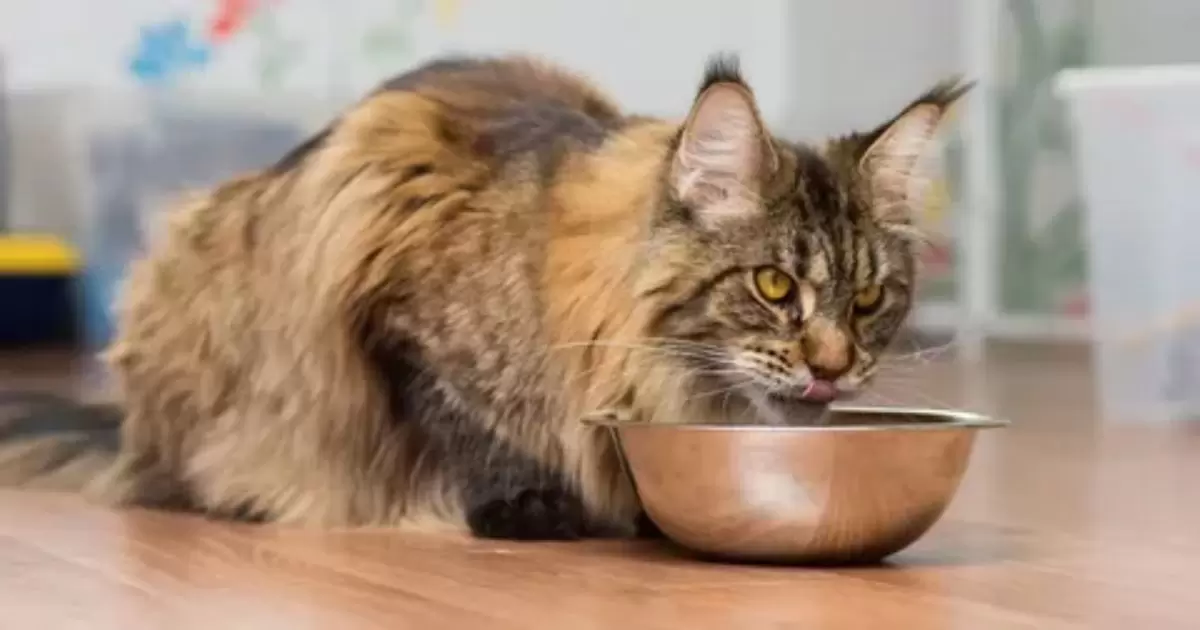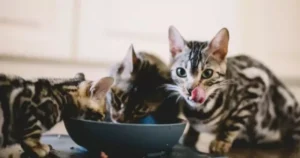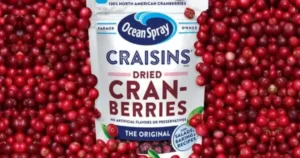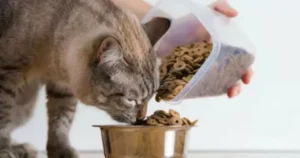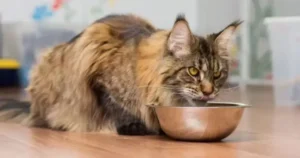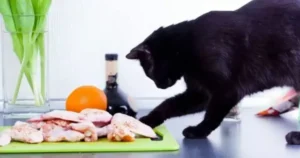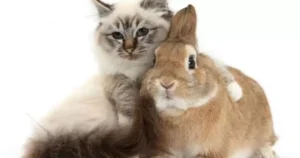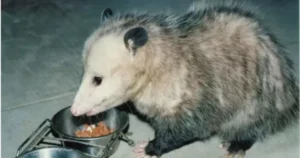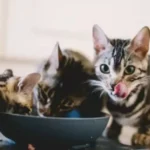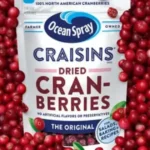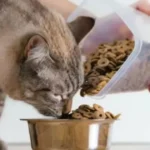Maine Coons are known for their large size, muscular build, and distinctive appearance. As one of the largest domesticated cat breeds, they have unique nutritional needs that must be met to maintain their health and vitality. In this comprehensive guide, we’ll explore the dietary requirements of Maine Coons, the key factors to consider when choosing their food, and provide tips to ensure your feline friend thrives.
Understanding the Unique Nutritional Needs of Maine Coons
Maine Coons have a higher metabolic rate compared to smaller cat breeds, which means they require more calories to sustain their larger body size and higher activity levels. Their genetic predisposition for a stocky, muscular frame also necessitates a diet rich in high-quality proteins to support lean muscle mass development and maintenance.
Additionally, Maine Coons are prone to certain health issues, such as hip dysplasia and heart disease, which can be influenced by their diet. Providing them with a complete and balanced nutrition plan tailored to their breed’s specific needs is crucial for their overall wellbeing.
Unlike their smaller counterparts, Maine Coons have unique dietary requirements that stem from their larger size and higher energy needs. Here’s a breakdown of their nutritional needs:
- Protein: As a breed with a propensity for muscle development, Maine Coons require a diet rich in high-quality animal proteins, such as chicken, turkey, fish, or lamb. These proteins provide the essential amino acids necessary for building and maintaining lean muscle mass.
- Fats: While often vilified, fats are an essential part of a balanced feline diet, providing energy and supporting coat health, skin integrity, and organ function. Maine Coons benefit from a diet that includes healthy sources of fat, such as animal-based fats and omega-3 fatty acids found in fish oils.
- Carbohydrates: Although cats are obligate carnivores, they do require a moderate amount of carbohydrates for energy and fiber. However, it’s important to choose high-quality, easily digestible carbohydrate sources, such as whole grains or vegetables, and avoid excessive amounts of fillers or simple sugars.
- Vitamins and Minerals: Essential vitamins and minerals, such as taurine, vitamin A, vitamin E, and zinc, play crucial roles in Maine Coons’ overall health, supporting everything from vision and heart function to immune system and skin health.
By understanding and meeting these unique nutritional needs, you can help your Maine Coon maintain a healthy weight, develop strong muscles, and support their overall well-being.
Key Considerations When Choosing Cat Food for Maine Coons
When selecting cat food for your Maine Coon, it’s essential to consider the following factors:
- Quality of Ingredients: Look for cat foods that prioritize high-quality, animal-based proteins like chicken, turkey, or salmon as the primary ingredients. Avoid foods that contain excessive fillers, by-products, or artificial preservatives.
- Nutritional Breakdown: Ensure the cat food meets the nutritional requirements specific to Maine Coons, including an appropriate balance of proteins, fats, carbohydrates, vitamins, and minerals.
- Life Stage: Maine Coons have different nutritional needs at various life stages, such as kitten, adult, and senior. Choose a formula specifically formulated for your cat’s age and activity level.
- Specialized Diets: If your Maine Coon has specific health concerns or dietary restrictions, consider limited ingredient or hypoallergenic cat foods to address their individual needs.
- Calorie Density: Due to their larger size and higher energy requirements, Maine Coons may benefit from a calorie-dense formula that provides more nutrition per serving, helping to ensure they consume enough calories without overeating.
- Palatability: Maine Coons can be somewhat picky eaters, so choosing a high-quality, palatable food can help encourage healthy eating habits and prevent finicky behavior.
By carefully considering these factors, you can find a cat food that not only meets your Maine Coon’s nutritional needs but also caters to their individual preferences and health concerns.
Ingredients to Look for in Cat Food for Maine Coons for a Healthy Diet
When selecting cat food for your Maine Coon, prioritize the following high-quality ingredients:
- Animal Proteins: Look for real meat sources like chicken, turkey, fish, or lamb as the first few ingredients. These provide essential amino acids for muscle development and maintenance.
- Omega-3 Fatty Acids: Ingredients like fish oil or flaxseed support healthy skin, coat, and joint function.
- Taurine is an essential amino acid for heart and eye health, typically found in animal-based proteins.
- Antioxidants: Vitamins and minerals like vitamin E, vitamin C, and selenium help support a strong immune system.
- Glucosamine and chondroitin: These supplements can promote joint health and mobility, which is particularly important for large breeds like Maine Coons.
- Whole Grains and Vegetables: High-quality carbohydrate sources, such as brown rice, oats, or sweet potatoes, provide fiber and energy while avoiding excessive fillers or simple sugars.
- Prebiotics and Probiotics: These beneficial bacteria and insoluble fibers can support digestive health and immune function.
By choosing a cat food that contains these high-quality ingredients, you can help ensure your Maine Coon receives the essential nutrients they need for optimal health and vitality.
Common Dietary Issues and How to Address Them in Maine Coons
Like any breed, Maine Coons can be susceptible to certain dietary issues. Here are some common concerns and how to address them:
- Food Allergies and Intolerances: If your Maine Coon exhibits signs of digestive distress, skin problems, or other allergic reactions, consider switching to a limited ingredient or hypoallergenic cat food to identify and eliminate potential triggers.
“My Maine Coon, Simba, struggled with recurrent ear infections and skin irritation for years. After consulting with our vet, we discovered he had a food allergy to chicken. Switching to a limited ingredient diet with fish as the protein source completely resolved his issues. Jessica, Maine Coon owner - Urinary Tract Problems: Maine Coons can be prone to urinary tract issues, such as crystals or stones. To maintain a healthy urinary pH balance, look for cat foods that contain cranberries or other natural acidifiers.
“Urinary tract infections are a common concern for Maine Coons, especially males,” says Dr. Emily Wilson, a veterinarian specializing in feline health. “Choosing a diet that promotes urinary tract health, with ingredients like cranberries or specially formulated pH-balanced recipes, can help prevent these issues.” - Weight Management: Due to their large size and potential for overeating, Maine Coons may be prone to weight gain. Monitor their body condition regularly and adjust portion sizes accordingly, or choose a weight management formula if necessary.
| Body Condition Score | Description |
| 1 – 3 | Underweight |
| 4 – 5 | Ideal Weight |
| 6 – 7 | Overweight |
| 8 – 9 | Obese |
- Regularly assessing your Maine Coon’s body condition score can help you identify if they need to gain or lose weight, allowing you to adjust their diet and portion sizes accordingly.
By being proactive and addressing these common dietary issues, you can help ensure your Maine Coon maintains optimal health and vitality throughout their life.
Do Maine Coons Gain Weight Easily?
Maine Coons are generally known to have a hearty appetite, and their large size means they require more calories than smaller cat breeds. However, this doesn’t necessarily mean they are prone to obesity. With proper portion control, a balanced diet, and regular exercise, Maine Coons can maintain a healthy weight.
It’s important to monitor your Maine Coon’s body condition regularly and adjust their food intake accordingly. Factors like age, activity level, and underlying health conditions can also influence their weight and dietary needs.
Here are some tips to help prevent weight gain in Maine Coons:
- Portion Control: Follow the recommended serving sizes on the cat food packaging, and adjust portions based on your cat’s age, activity level, and body condition.
- Interactive Feeding: Use puzzle feeders or treat-dispensing toys to encourage natural hunting behaviors and prevent boredom or overeating.
- Regular Exercise: Provide plenty of opportunities for play and activity, such as cat towers, interactive toys, or supervised outdoor time, to help burn calories and maintain a healthy weight.
- Monitor Treat Intake: While treats can be a great way to bond with your Maine Coon, be mindful of the calories they add to your cat’s diet and adjust their regular food portions accordingly.
By being attentive to your Maine Coon’s dietary needs and activity levels, you can help them maintain a healthy weight and prevent obesity-related health issues.
Wet Food or Dry Food? Which is the Best Food for Maine Coons?
Both wet (canned) and dry (kibble) cat foods can be suitable for Maine Coons, as long as they meet the breed’s nutritional requirements. Here are some pros and cons of each:
Wet Food:
- Pros: higher moisture content, which can aid in hydration and urinary tract health; often more palatable and appealing to cats; higher protein content.
- Cons: more expensive; shorter shelf life once opened; potential for dental issues if not supplemented with dry food.
Dry Food:
- Pros: convenient; longer shelf life; can help with dental health by reducing plaque and tartar buildup.
- Cons: lower moisture content; potential for overconsumption if not properly portion-controlled.
Many cat owners opt for a mixed diet, offering both wet and dry food to their Maine Coons. This approach can provide the benefits of both types of food while catering to your cat’s preferences and individual needs.
“I’ve found that a combination of wet and dry food works best for my Maine Coon, Milo,” says Sarah, a proud Maine Coon owner. “He gets the hydration and palatability of wet food, along with the dental benefits and convenience of dry food. Plus, it adds variety to his diet, which he seems to enjoy.”
When choosing a mixed diet, it’s important to adjust portion sizes appropriately to avoid overfeeding and maintain a balanced caloric intake.
Additional Tips for Maintaining a Healthy Diet for Maine Coons
Beyond choosing the right cat food, there are several other tips to ensure your Maine Coon maintains a balanced and healthy diet:
- Portion Control: Follow the recommended serving sizes on the cat food packaging, and adjust portions based on your cat’s age, activity level, and body condition.
- Interactive Feeding: Use puzzle feeders or treat-dispensing toys to encourage natural hunting behaviors and prevent boredom or overeating.
- Fresh Water: Always provide access to clean, fresh water to promote proper hydration.
- Regular Vet Visits: Consult with your veterinarian regularly to monitor your Maine Coon’s health and make any necessary dietary adjustments.
- Gradual Transitions: When switching to a new cat food, introduce it gradually by mixing it with their current food to avoid digestive upset.
- Variety: While consistency is important, offering a rotation of high-quality cat foods can provide variety in flavor and nutrients, preventing food boredom.
- Supplements (if needed): In some cases, your veterinarian may recommend supplements, such as probiotics, fiber, or joint supplements, to address specific health concerns.
By following these guidelines and providing a nutritious, well-balanced diet, you can help your Maine Coon thrive and enjoy a long, healthy life.
Conclusion:
Maine Coons are magnificent felines with unique dietary needs that must be met to support their overall health and well-being. By understanding their nutritional requirements, choosing high-quality cat food with the right ingredients, and addressing any potential dietary issues, you can ensure your Maine Coon receives the nourishment they need to thrive.
Remember, every cat is an individual, and their dietary needs may vary based on factors such as age, activity level, and health status. Regular consultations with your veterinarian and careful monitoring of your Maine Coon’s body condition can help you make informed decisions about their diet and keep them in optimal health.
With the right approach to nutrition, your Maine Coon can enjoy a life full of energy, vitality, and the majestic presence that this breed is known for. Invest in their well-being through a carefully curated diet, and you’ll be rewarded with a happy, healthy feline companion for years to come.
